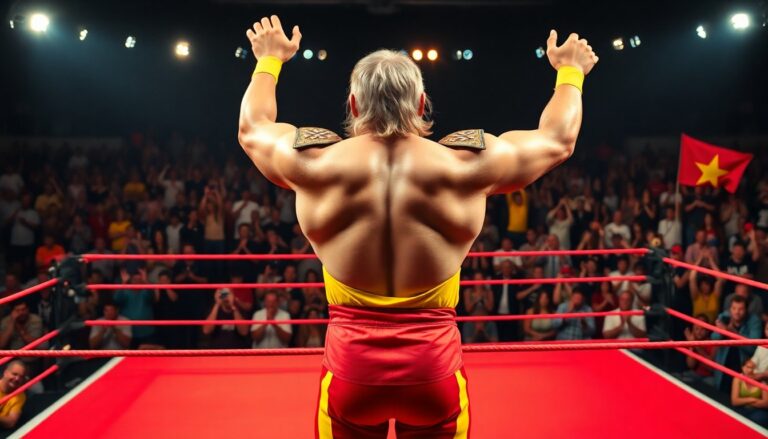Argomenti trattati
Terry Gene Bollea, widely recognized as Hulk Hogan, emerged from humble beginnings in Augusta, Georgia. His birth date is August 11, 1953. As a young boy, Hogan exhibited a keen interest in sports, with a particular focus on baseball. However, his path took a decisive turn when he entered the world of professional wrestling. Hogan’s larger-than-life persona, marked by a heroic and quintessentially American image, resonated with audiences around the globe. This captivating character not only entertained but also solidified his position as one of the most iconic figures in wrestling history.
Early career and rise to fame
Hogan’s journey into wrestling began in 1977, training under the legendary Hiro Matsuda. Despite a significant setback when Matsuda broke his leg during training, Hogan’s determination propelled him back into the ring. He made his debut in Championship Wrestling from Florida, quickly capturing attention. His early career included significant stints in various wrestling promotions, such as the American Wrestling Association (AWA) and New Japan Pro-Wrestling (NJPW), where he earned the nickname Ichiban, meaning “number one” in Japanese.
Hogan’s entry into professional wrestling
In 1983, Hulk Hogan joined the World Wrestling Federation (WWF), which would later become known as WWE. His charismatic personality and impressive physique quickly made him a fan favorite. Hogan’s career took off in January 1984, when he defeated The Iron Sheik to capture his first WWF World Heavyweight Championship. This victory ignited the Hulkamania phenomenon, captivating audiences and transforming the landscape of professional wrestling.
Iconic moments and championship reigns
In the 1980s, Hulk Hogan emerged as a defining figure in professional wrestling. He headlined several WrestleMania events, including the landmark WrestleMania III, where he delivered a legendary body slam to the enormous André the Giant. Hogan’s magnetic personality and ability to engage with fans positioned him at the forefront of the 1980s wrestling boom. Throughout his career, he won the WWF Championship six times, cementing his status as a cultural icon who championed values such as hard work, belief, and integrity.
The Hollywood Hogan era
In 1994, Hulk Hogan made a significant transition by joining World Championship Wrestling (WCW). This decision allowed him to redefine his persona as the villainous Hollywood Hogan, spearheading the notorious New World Order (nWo) stable. This shift revitalized his career and played a crucial role in the Monday Night Wars, a fierce rivalry between WWF and WCW that captivated wrestling audiences.
Controversies and personal struggles
Despite his achievements, Hogan’s path was fraught with difficulties. In 1994, he publicly acknowledged his use of anabolic steroids, a revelation that ignited controversy and raised concerns about the sport’s integrity. Additional scandals surfaced in 2012 when Gawker Media released excerpts from a private video, leading to a legal dispute that ultimately damaged his public reputation.
Following a series of events, including controversial remarks captured in leaked recordings, Hulk Hogan’s reputation suffered significant damage. Despite winning a notable lawsuit against Gawker, the impact on his legacy was substantial, leading to a divided public perception. Hogan’s death evoked mixed reactions, highlighting the complexities of his influence and the ongoing debate about his legacy.
Legacy in wrestling and beyond
Hogan’s impact on professional wrestling is significant. He not only paved the way for future wrestling stars but also transformed the industry into a mainstream entertainment spectacle. His ability to connect with audiences and create memorable moments solidified his status in wrestling history, making him a pivotal figure in the evolution of the sport.
Beyond wrestling, Hogan ventured into acting, appearing in films such as No Holds Barred and Rocky III. These roles showcased his charisma outside the ring. Additionally, he produced music, further diversifying his career. However, it is his wrestling legacy that remains most prominent, as he continues to serve as a reference point for aspiring wrestlers and fans alike.
Hulk Hogan’s journey through triumphs and tribulations illustrates a complex figure in sports history. His contributions to wrestling, despite being marred by controversies, have left a lasting impact that will be remembered for generations.

